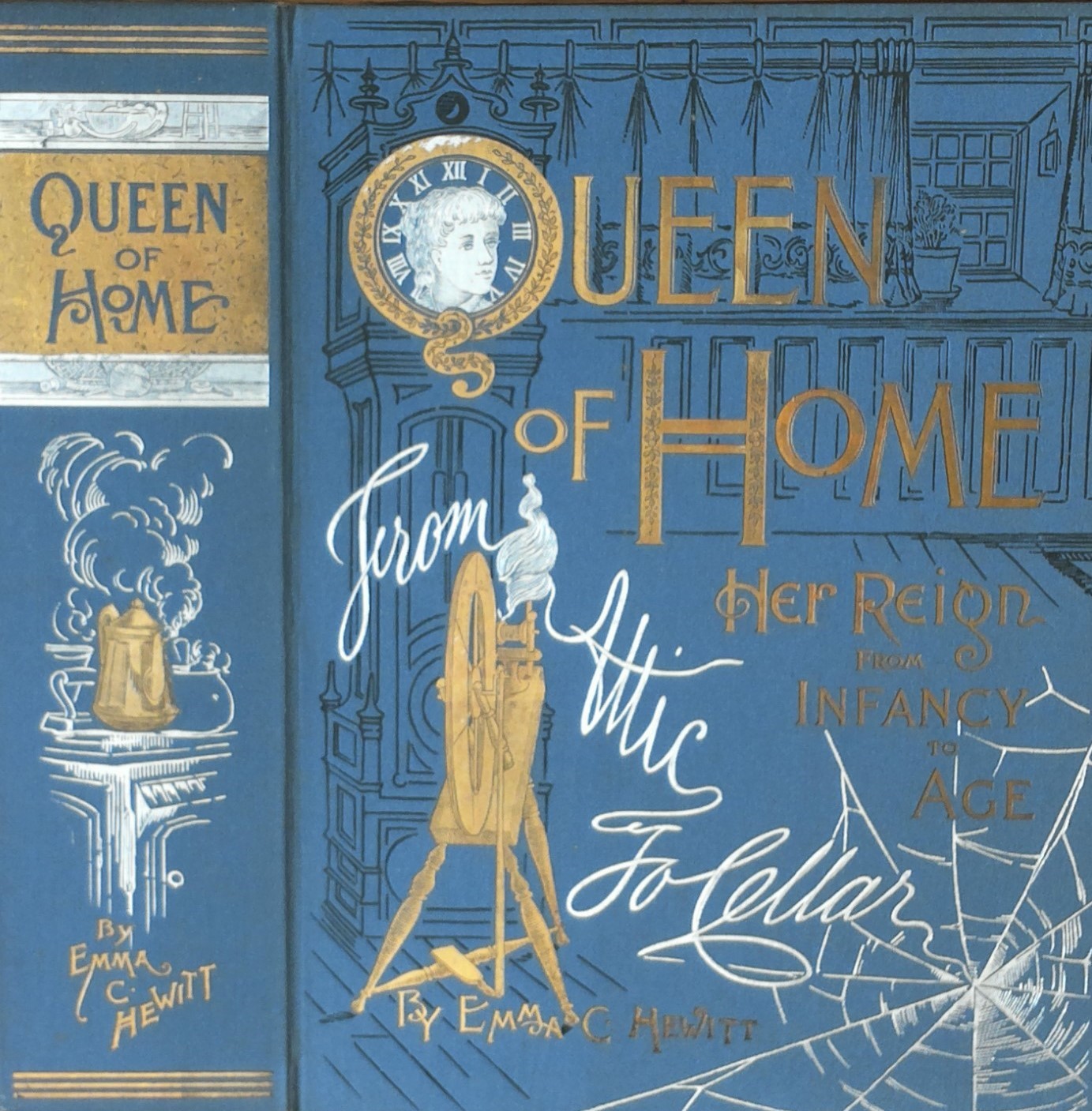Queen of home: her reign from infancy to age, from attic to cellar by Emma Churchman Hewitt is a comprehensive, 528-page introduction to all aspects of household management. Presented in a narrative style that addresses readers directly, Hewitt and her invited experts take on the task of explaining to the novice homemaker how to succeed as the “queen” of her home. When the book was published in 1889 by the International Publishing Company in Philadelphia, Hewitt was the Associate Editor of the Ladies’ Home Journal, an enormously popular and influential women’s magazine that circulated from 1883 until 2016. Household management, the discipline of running an efficient and pleasing home, was in vogue among middle and upper middle class American women. Queen of home, aspirational with a practical undercurrent, offered advice on seemingly all relevant topics from home decoration to raising children. The entire book can be read here: https://archive.org/details/queenofhomeherre00hewi/page/n7/mode/2up
Throughout the 19th century, there were a variety of ways that books were sold: in bookstores, in general or stationery stores, and by colportage or door-to-door sales. Long before the advent of print on demand, subscription publishing flourished. When books were ordered and paid for in advance, the publisher could raise enough capital to print. For door-to-door subscription booksellers, the sales dummy was essential. In a single volume, the seller could show the buyer binding options, paper quality, illustrations, and text samples, while recording names and address, providing receipts, and – perhaps most crucial – relying on preprinted talking points that underscore the potential buyers’ need for the book.
Wesleyan holds a few examples of sales dummies, including this colorful specimen, designed to sell copies of Queen of home. The book was available in three bindings, including the elaborately decorated cloth option pictured here. Throughout the sales dummy, bright pink slips of paper remind the seller of the message he – or she – must communicate in order to sell the book. The very importance of acquiring books is promoted:
No matter how humble the home it should have in it good books. They are always a paying investment. The husband and wife who read together, are most apt to think together, which means congenial home life. And the mother who fails to constantly encourage her children in the reading of good books is very apt to let them begin life insufficiently equipped for its tasks.
This blog post is sixth in a series on ephemera in Wesleyan’s Special Collections & Archives, presented in conjunction with the Center for the Humanities’ Spring 2021 theme of Ephemera. On April 5th at 6 p.m., Lucy Mulroney (Yale) will lecture on “An Experiment in Living.” Here is the full series calendar.
– Suzy Taraba, Director of Special Collections & Archives


